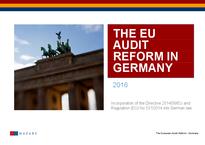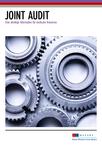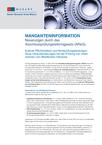Germany
The main elements of the German audit law are the following:
- Mandatory audit firm rotation must take place every 10 years.The audit mandate can be extended for another 10 years after an open and competitive tender has been carried out.
- In the case of joint audit, the rotation period can be extended to 24 years without the need to tender.
- Credit institutions and insurance companies are required to apply rotation every 10 years, with no possibility for extension.
- Key audit partners must rotate after 7 years
- No additional items have been added to the EU list of prohibited non-audit services.
- Germany has exercised its option to allow tax and valuation services, with certain restrictions (see information sheet).
- The fee cap for non-audit services is maintained at 70 %, as established in the EU legislation.
To have a wider overview of Germany’s new measures, please consult our information sheet below in English.
The German Mazars office has conducted a webinar on the implementation of the EU Audit Reform and its consequences. You can replay the webinar here.
For German speakers, please refer to our detailed publications below on joint audit and the implementation of the EAR in Germany.



